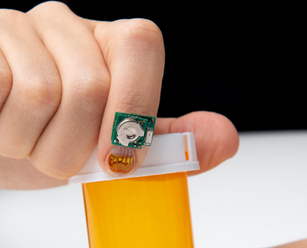Trusting pharmacists, Harvard teaches how to swallow, tracking Parkinson’s via fingernails, and more
27 Dec 2018
Posted by Andrew Kantor
We’re a trust fund, baby, you can trust us
CVS and Aetna told a judge they don’t need oversight while their merger is reviewed. They pinkie-promised to monitor themselves and let the judge know if they do anything wrong.
Instead, the company promised to submit quarterly reports to the court or give 30 days notice if it wants to change or end one of the commitments.
The judge essentially agreed with the request:
Judge Richard Leon in Washington said in an order late last Friday that he would essentially allow Aetna to operate independently on key decisions like pricing, hiring employees and products brought to market.
Speaking of trust, pharmacists still near the top
Near the top of the Gallup “survey of honesty and ethical standards” that is. Once again, nurses took the lead, but pharmacists are virtually tied with physicians for second place. (Who’s at the bottom of the list? Members of Congress, of course.)
After legality, marijuana use … drops?
Wait, what? Turns out — per a paper in JAMA Pediatrics — that after Washington State legalized marijuana, teen use of weed fell.
They found that marijuana use among eighth-graders fell from almost 10 percent to just over 7 percent. In 10th grade, pot use declined from nearly 20 percent to less than 18 percent. There was no change among 12th graders, the study found.
Harvard Medical School answers the tough questions
In this case, “How to swallow a pill.”
(The article does warn, however, that “it’s not a given that one of these methods will work for you or be safe for you, especially if you have a hard time swallowing pills.”)
Fingernail sensor tracks Parkinson’s
Fingernails are surprisingly informative: they tell a lot about how we use our hands and fingers. So IBM developed a prototype sensor that attaches to the nail, collects information, and can help diagnose the progression of Parkinson’s and other diseases.
The sensor then talks to a smartwatch that runs machine learning models to detect tremors and other symptoms of Parkinson’s disease. That model can detect what a wearer is doing (opening a doorknob, using a screwdriver, etc.). The data and the model are accurate enough to track when wearers write digits with their fingers.

To get to the other side
Question: Why did the Golimumab cross the placental barrier?
If it doesn’t work, up the dosage
Another study finds that, with the exception of cancer treatment, opioids don’t do a lot for chronic pain — at best, they’re a little better than OTC meds or even placebos.
Overall, his team found, opioids were no better than non-steroidal anti-inflammatory drugs (NSAIDs) like ibuprofen. They were also roughly equal to antidepressants, anti-seizure drugs (which are sometimes used for nerve pain) and synthetic cannabinoids.


